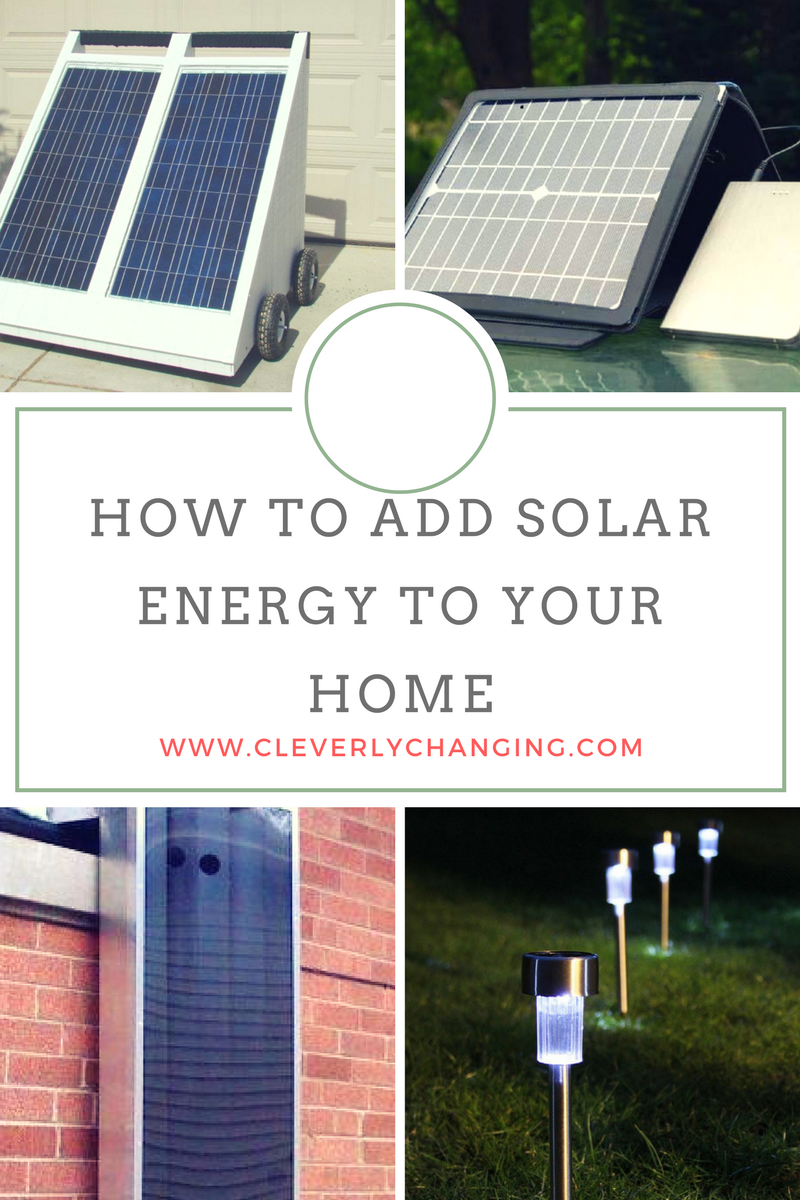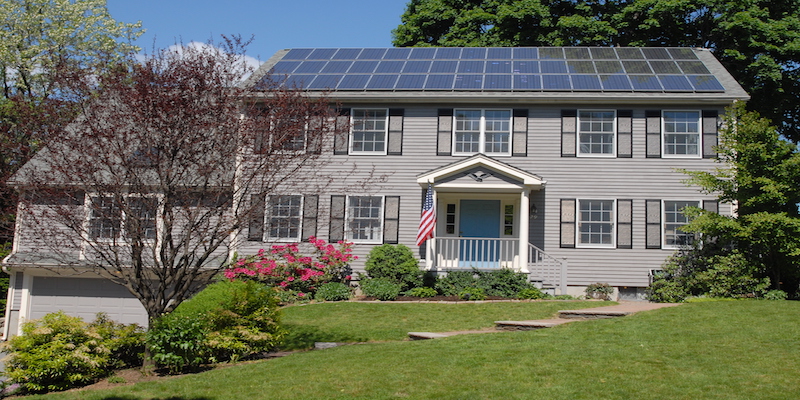Here’s some good news: the tax benefits associated with adding solar power and improving your home’s overall sustainability continues until 2020. These benefits can help offset the costs of installation and maintenance and are just one of the reasons you should start shifting your home toward sustainable energy sources.
Of course saying that is easy. Actually making those changes can be incredibly challenging and not just because not everybody reading this will be a homeowner. If you’ve been trying to find ways to implement solar power at home, here are some tips and tricks that will make this shift easier and even more cost-effective.

Solar Panels
If you own your home, installing even one solar cell panel can help you reduce your power bills, increase your home’s sustainability and qualify you for those tax benefits we mentioned earlier. And it is possible to start with just one panel and then add more as you can afford them. In some states, like Arizona, you can even use your solar panels to make money by selling your excess energy back to your city or state to bolster the municipal power grid. According to the experts at solar-electric.com, these rates can vary based on where you live. You can find out what your local rates are by contacting your local energy provider.
Solar Lights
Whether you are a homeowner or a renter, you can still take advantage of solar-powered lighting. These lights work best when installed in outdoor lighting fixtures. They “soak up” solar power all day and then use that to power the bulb in the evenings. These lights make great replacements for patio lights, front porch lights and any yard lighting that you might have.
Of course, you don’t have to limit these lights’ use to outdoor lighting fixtures. Because they’re built to not need A/C power, you can use them for nightlights within the home, mood lighting fixtures, portable light sources for camping…the only limit here is your creativity and willingness to DIY.
Solar Chargers
Solar chargers have become incredibly popular among travelers and hikers. The smaller cells are capable of charging mobile devices like smartphones and tablets. They can even be expanded to accommodate a laptop’s power needs. Using these chargers to power your devices is a great way to reduce your reliance upon the municipal power grid.
Another reason to switch from A/C to solar power for device charging is that it will dramatically cut your vampire power costs. Vampire or ghost power is the power that is consumed by devices simply because they are plugged in. For example, even when a lamp is turned off, the outlet in which it is plugged is still in an “active” state and drawing power from the grid. So, leaving a charged device plugged in really is driving up your energy costs.
Solar generators
Solar generators are growing in popularity among preppers and rural homeowners. These generators employ solar cells instead of requiring physical fuel sources. These generators take in solar energy and convert it to A/C power. The larger generators can be used to power a home if a power failure occurs. The smaller generators can be used while camping and/or living off the grid.
Solar Space Heaters
Solar space heaters are fantastic tools for renters and homeowners who worry about their home heating costs during cooler months. A/C powered space heaters are famous for overheating and for tripping breakers when left on for extended periods of time. A solar-powered heater, though, can be charged during the day and employed in the evenings for as long as the cell lasts. The user doesn’t have to worry that breakers will trip or that home heating costs will skyrocket. Not only do these heaters not use A/C power, they allow the user to turn down their A/C powered heat sources and save costs there as well.
There are a lot of ways to employ solar power in your home and in your everyday life. We’ve outlined some of the methods in this article. Have you had success using solar power in other ways? Let us know!

